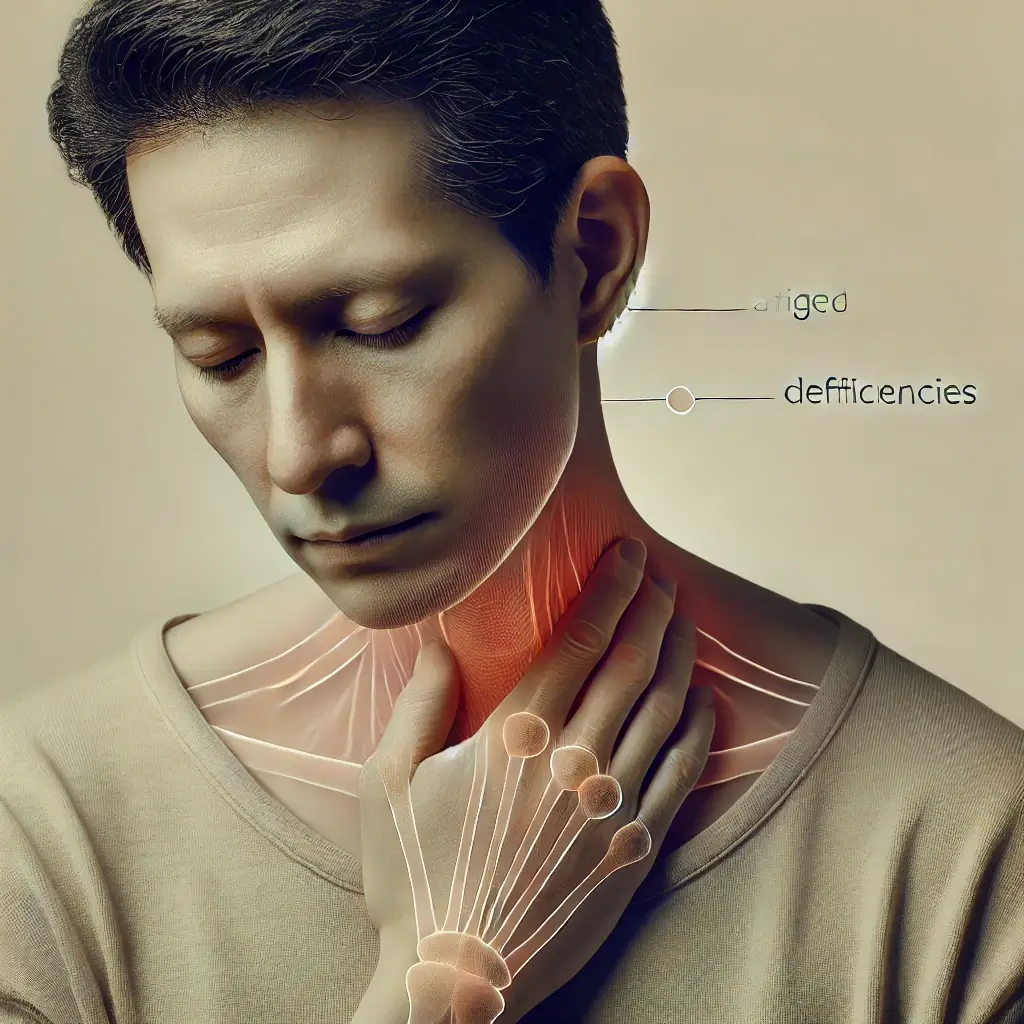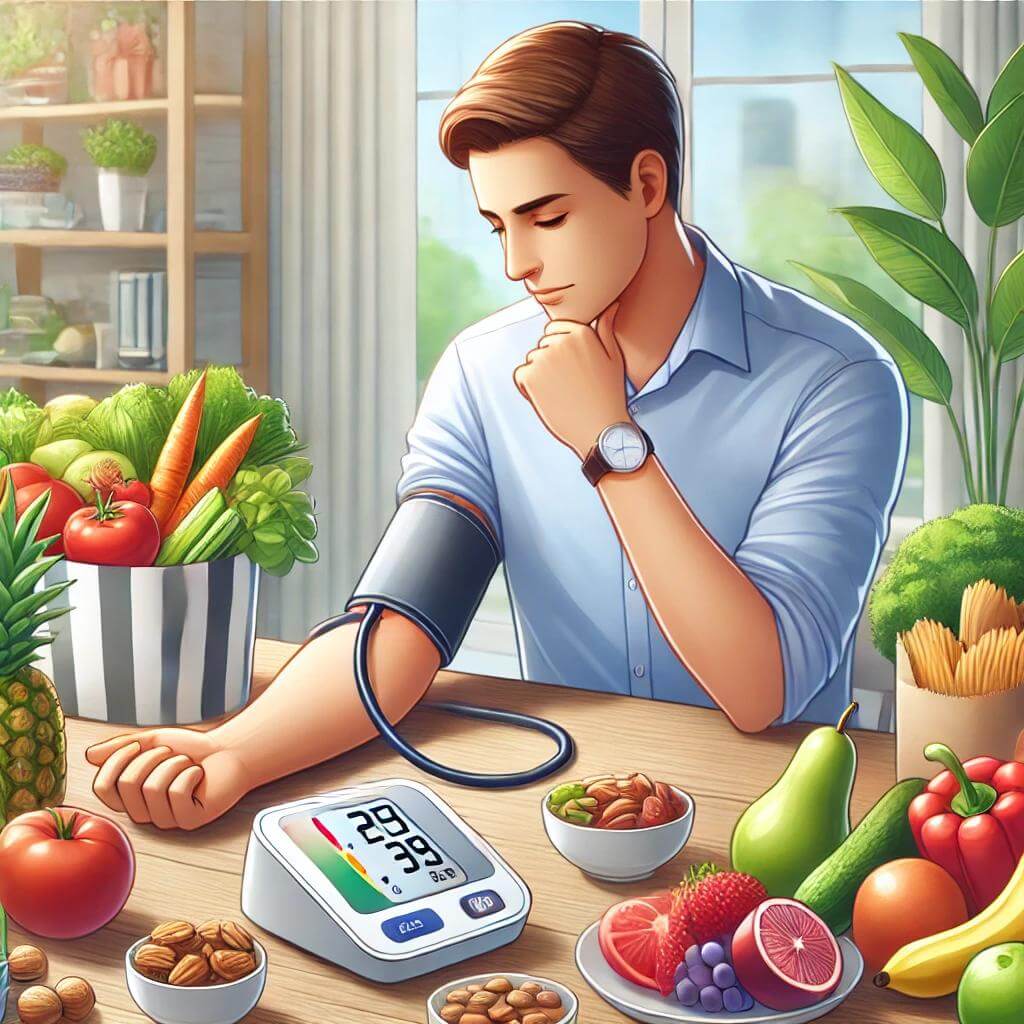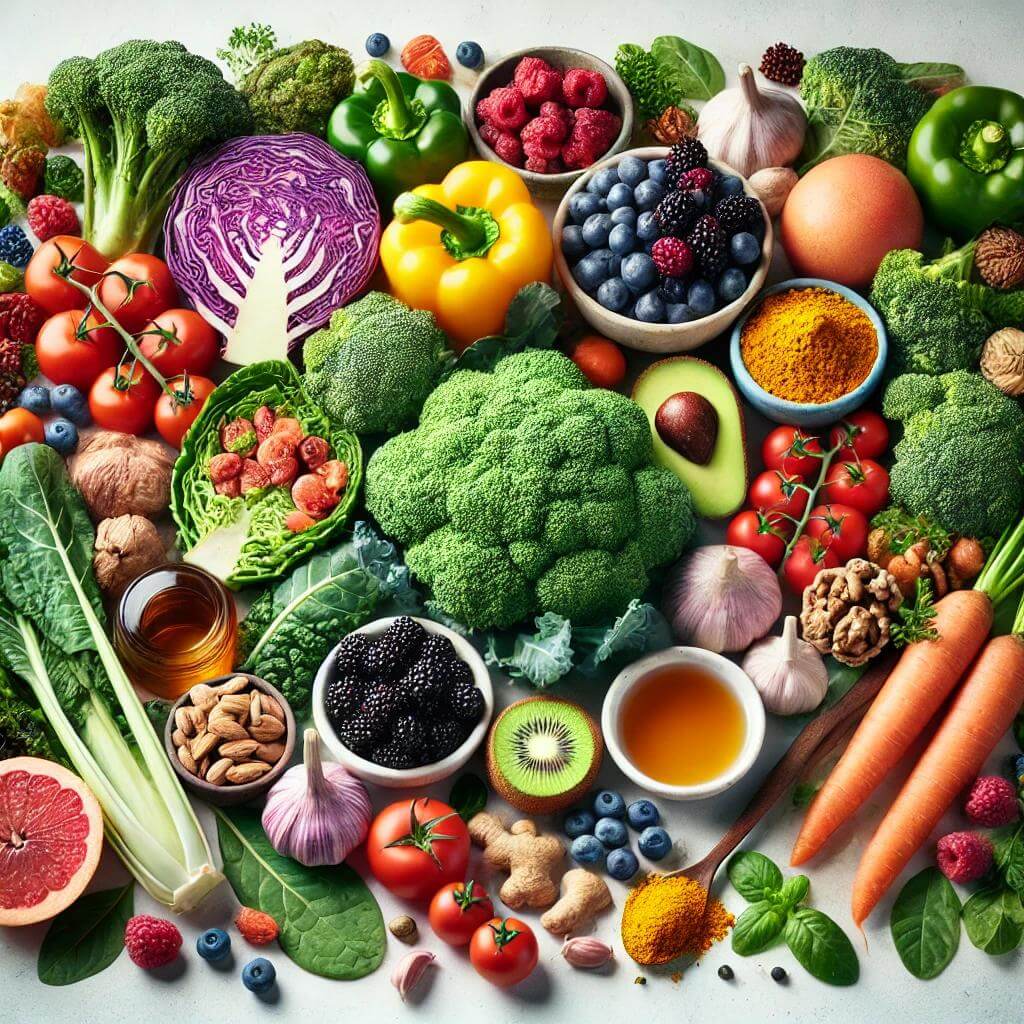Top 10 Nutritional Deficiencies: How to Identify and Address Them

Nutritional deficiencies occur when your body doesn’t get enough essential vitamins, minerals, or other nutrients. These deficiencies can lead to a variety of health problems, ranging from fatigue and weakened immunity to more serious conditions like osteoporosis and anemia. In a world where many people have access to a wide variety of foods, it’s surprising how common these deficiencies are. Understanding the most prevalent nutritional deficiencies can help you make informed dietary choices and ensure your body gets the nutrients it needs to function optimally. This article explores the most common nutritional deficiencies, ranked by their prevalence, and offers detailed insights into their causes, symptoms, and how to address them.
The Most Common Nutritional Deficiencies
1. Iron Deficiency
Iron deficiency is the most common nutritional deficiency worldwide, particularly among women of childbearing age, children, and vegetarians. Iron is crucial for the production of hemoglobin, a protein in red blood cells that carries oxygen throughout the body.
- Symptoms of Iron Deficiency:
- Fatigue and Weakness: Without enough iron, your body can’t produce enough healthy red blood cells, leading to fatigue and weakness.
- Pale Skin: A lack of hemoglobin can cause your skin to appear pale.
- Shortness of Breath and Dizziness: Reduced oxygen levels can lead to these symptoms, particularly during physical activity.
- Brittle Nails and Hair Loss: Iron deficiency can also affect the health of your hair and nails.
- How to Address Iron Deficiency:
- Dietary Sources: Include iron-rich foods such as red meat, poultry, seafood, beans, lentils, spinach, and fortified cereals in your diet.
- Iron Supplements: If dietary changes aren’t enough, iron supplements may be necessary, particularly for those with severe deficiencies.
- Vitamin C: Consuming vitamin C-rich foods like oranges, strawberries, and bell peppers alongside iron-rich foods can enhance iron absorption.
2. Vitamin D Deficiency
Vitamin D is essential for bone health because it helps the body absorb calcium. It also plays a role in immune function and mood regulation. Despite being known as the “sunshine vitamin,” many people are deficient in vitamin D due to limited sun exposure and inadequate dietary intake.
- Symptoms of Vitamin D Deficiency:
- Bone Pain and Muscle Weakness: A lack of vitamin D can lead to bone pain and muscle weakness, increasing the risk of fractures.
- Depression: Low levels of vitamin D have been linked to mood disorders, including depression.
- Frequent Infections: Vitamin D is crucial for immune function, and a deficiency may result in increased susceptibility to infections.
- How to Address Vitamin D Deficiency:
- Sun Exposure: Aim for 10-30 minutes of sun exposure several times a week, depending on your skin tone and the time of year.
- Dietary Sources: Include foods like fatty fish (salmon, mackerel), egg yolks, and fortified dairy products in your diet.
- Vitamin D Supplements: In cases where sun exposure and diet aren’t sufficient, supplements can help maintain optimal levels.
3. Calcium Deficiency
Calcium is vital for strong bones and teeth, as well as for muscle function, nerve signaling, and heart health. Calcium deficiency can lead to bone-related diseases, particularly in older adults.
- Symptoms of Calcium Deficiency:
- Osteoporosis: Prolonged calcium deficiency can lead to osteoporosis, a condition characterized by weak and brittle bones.
- Muscle Cramps and Spasms: Low calcium levels can cause muscle cramps, spasms, and even numbness in the extremities.
- Dental Problems: A lack of calcium can weaken teeth, leading to tooth decay and other dental issues.
- How to Address Calcium Deficiency:
- Dietary Sources: Consume calcium-rich foods such as dairy products (milk, cheese, yogurt), leafy greens (kale, broccoli), and fortified plant-based milks.
- Calcium Supplements: If you’re unable to get enough calcium from your diet, supplements may be necessary.
- Vitamin D: Ensure adequate vitamin D intake to enhance calcium absorption.
4. Vitamin B12 Deficiency
Vitamin B12 is essential for the production of red blood cells and DNA, as well as for the proper functioning of the nervous system. Vitamin B12 deficiency is particularly common in older adults and those following a vegetarian or vegan diet.
- Symptoms of Vitamin B12 Deficiency:
- Fatigue and Weakness: Vitamin B12 is crucial for energy production, and a deficiency can lead to extreme tiredness and weakness.
- Nerve Damage: Prolonged deficiency can cause nerve damage, resulting in numbness and tingling in the hands and feet.
- Memory Loss and Cognitive Decline: Vitamin B12 is essential for brain health, and a deficiency can lead to memory problems and cognitive decline.
- Anemia: Vitamin B12 deficiency can lead to megaloblastic anemia, characterized by large, abnormal red blood cells.
- How to Address Vitamin B12 Deficiency:
- Dietary Sources: Include animal products such as meat, fish, poultry, eggs, and dairy in your diet.
- Vitamin B12 Supplements: Vegetarians, vegans, and older adults may need to take B12 supplements or consume fortified foods to meet their needs.
- B12 Injections: In severe cases, B12 injections may be necessary to restore adequate levels.
5. Magnesium Deficiency
Magnesium is involved in over 300 biochemical reactions in the body, including muscle and nerve function, blood sugar control, and blood pressure regulation. Magnesium deficiency is often overlooked but can have serious health consequences.
- Symptoms of Magnesium Deficiency:
- Muscle Cramps and Spasms: Magnesium is crucial for muscle function, and a deficiency can lead to cramps, spasms, and restless leg syndrome.
- Fatigue and Weakness: Magnesium plays a role in energy production, and low levels can cause fatigue and weakness.
- High Blood Pressure: Magnesium helps regulate blood pressure, and a deficiency may contribute to hypertension.
- Irregular Heartbeat: Severe magnesium deficiency can lead to an irregular heartbeat, which can be life-threatening.
- How to Address Magnesium Deficiency:
- Dietary Sources: Include magnesium-rich foods such as nuts, seeds, whole grains, leafy greens, and legumes in your diet.
- Magnesium Supplements: If dietary intake is insufficient, magnesium supplements may be necessary.
- Reduce Stress: High stress levels can deplete magnesium, so practicing stress management techniques is also important.
6. Iodine Deficiency
Iodine is essential for the production of thyroid hormones, which regulate metabolism, growth, and development. Iodine deficiency is a major public health issue, particularly in regions where iodine-rich foods are scarce.
- Symptoms of Iodine Deficiency:
- Goiter: A visible enlargement of the thyroid gland, known as a goiter, is a common sign of iodine deficiency.
- Weight Gain and Fatigue: Iodine deficiency can lead to hypothyroidism, which causes weight gain, fatigue, and a slowed metabolism.
- Cognitive Impairment: Iodine is crucial for brain development, and a deficiency during pregnancy can lead to cognitive impairments in children.
- How to Address Iodine Deficiency:
- Dietary Sources: Include iodine-rich foods such as seaweed, fish, dairy products, and iodized salt in your diet.
- Iodine Supplements: In areas where iodine deficiency is common, supplements or iodized salt are recommended.
- Monitor Thyroid Function: Regular monitoring of thyroid function can help detect and address iodine deficiency early.
7. Vitamin A Deficiency
Vitamin A is essential for maintaining healthy vision, immune function, and skin health. Vitamin A deficiency is most common in developing countries but can also occur in individuals with certain medical conditions or dietary restrictions.
- Symptoms of Vitamin A Deficiency:
- Night Blindness: A lack of vitamin A can lead to difficulty seeing in low light conditions, a condition known as night blindness.
- Dry Skin and Eyes: Vitamin A is crucial for maintaining the health of skin and mucous membranes, and a deficiency can cause dry, scaly skin and dry eyes.
- Increased Susceptibility to Infections: Vitamin A supports the immune system, and a deficiency can increase the risk of infections.
- How to Address Vitamin A Deficiency:
- Dietary Sources: Include foods rich in vitamin A such as liver, fish oil, eggs, dairy products, and orange or yellow fruits and vegetables (carrots, sweet potatoes, mangoes).
- Vitamin A Supplements: In cases of severe deficiency, supplements may be necessary to restore adequate levels.
- Fat Intake: Ensure sufficient dietary fat, as vitamin A is fat-soluble and requires fat for proper absorption.
8. Zinc Deficiency
Zinc is essential for immune function, wound healing, DNA synthesis, and cell division. Zinc deficiency is relatively common, particularly in developing countries, and can lead to a range of health issues.
- Symptoms of Zinc Deficiency:
- Impaired Immune Function: Zinc is crucial for immune system function, and a deficiency can lead to increased susceptibility to infections, slower wound healing, and a weakened immune response.
- Hair Loss: Zinc plays a vital role in hair tissue growth and repair, and a deficiency can contribute to hair thinning and loss.
- Loss of Appetite: A lack of zinc can diminish your sense of taste and smell, leading to a reduced appetite.
- Skin Issues: Zinc deficiency can cause skin rashes, particularly around the mouth, nose, and eyes, and may also contribute to acne.
- How to Address Zinc Deficiency:
- Dietary Sources: Include zinc-rich foods such as meat, shellfish, legumes, seeds, nuts, and dairy in your diet.
- Zinc Supplements: If dietary intake is insufficient, particularly in vegetarians and vegans, zinc supplements may be necessary.
- Avoid Excess Phytates: Phytates, found in whole grains and legumes, can inhibit zinc absorption, so proper preparation of these foods (e.g., soaking, sprouting) can help.
9. Folate (Vitamin B9) Deficiency
Folate is a B-vitamin essential for DNA synthesis, cell division, and the formation of red blood cells. Folate deficiency is particularly concerning during pregnancy, as it can lead to birth defects.
- Symptoms of Folate Deficiency:
- Anemia: Folate deficiency can lead to megaloblastic anemia, which causes fatigue, weakness, and pale skin.
- Neural Tube Defects: In pregnant women, a lack of folate can lead to neural tube defects in the developing fetus, such as spina bifida.
- Digestive Issues: Folate deficiency can cause digestive problems like diarrhea and loss of appetite.
- Mental Fatigue: Folate is important for brain function, and a deficiency can lead to confusion, irritability, and difficulty concentrating.
- How to Address Folate Deficiency:
- Dietary Sources: Include folate-rich foods such as leafy greens, legumes, nuts, seeds, and fortified cereals in your diet.
- Folic Acid Supplements: Pregnant women and those planning to conceive are often advised to take folic acid supplements to prevent birth defects.
- Balanced Diet: Ensure a balanced diet that includes a variety of fruits and vegetables to meet folate needs.
10. Vitamin K Deficiency
Vitamin K is essential for blood clotting and bone health. While vitamin K deficiency is rare, it can occur in people with certain medical conditions or those taking medications that interfere with vitamin K absorption.
- Symptoms of Vitamin K Deficiency:
- Easy Bruising: Without enough vitamin K, the blood doesn’t clot properly, leading to easy bruising and excessive bleeding.
- Bleeding Gums: Vitamin K deficiency can cause gum bleeding, particularly after brushing or flossing.
- Osteoporosis: Vitamin K is important for bone health, and a deficiency can contribute to weakened bones and osteoporosis.
- Heavy Menstrual Bleeding: Women with vitamin K deficiency may experience heavy menstrual bleeding.
- How to Address Vitamin K Deficiency:
- Dietary Sources: Include vitamin K-rich foods such as leafy greens (kale, spinach), broccoli, Brussels sprouts, and fermented foods like natto in your diet.
- Vitamin K Supplements: In cases of deficiency, particularly in individuals taking anticoagulant medications, supplements may be recommended by a healthcare provider.
- Monitor Medications: If you’re taking blood thinners or other medications that affect vitamin K absorption, regular monitoring and adjustment of vitamin K intake may be necessary.
Summary Table of Common Nutritional Deficiencies
| Nutrient Deficiency | Common Symptoms | How to Address |
|---|---|---|
| Iron Deficiency | Fatigue, weakness, pale skin, shortness of breath | Iron-rich foods, iron supplements, vitamin C for absorption |
| Vitamin D Deficiency | Bone pain, muscle weakness, depression, infections | Sun exposure, vitamin D-rich foods, supplements |
| Calcium Deficiency | Osteoporosis, muscle cramps, dental problems | Calcium-rich foods, supplements, vitamin D for absorption |
| Vitamin B12 Deficiency | Fatigue, nerve damage, cognitive decline, anemia | Animal products, supplements, B12 injections |
| Magnesium Deficiency | Muscle cramps, fatigue, high blood pressure, irregular heartbeat | Magnesium-rich foods, supplements, stress reduction |
| Iodine Deficiency | Goiter, weight gain, cognitive impairment | Iodine-rich foods, supplements, thyroid function monitoring |
| Vitamin A Deficiency | Night blindness, dry skin, increased infection risk | Vitamin A-rich foods, supplements, adequate dietary fat |
| Zinc Deficiency | Impaired immunity, hair loss, loss of appetite, skin issues | Zinc-rich foods, supplements, proper preparation of phytate-rich foods |
| Folate Deficiency | Anemia, neural tube defects, digestive issues, mental fatigue | Folate-rich foods, folic acid supplements, balanced diet |
| Vitamin K Deficiency | Easy bruising, bleeding gums, osteoporosis, heavy menstrual bleeding | Vitamin K-rich foods, supplements, medication monitoring |
Conclusion
Nutritional deficiencies are more common than many people realize and can have a significant impact on your overall health and well-being. Identifying and addressing these deficiencies is crucial for preventing long-term health problems. By incorporating a variety of nutrient-rich foods into your diet and considering supplements when necessary, you can ensure your body gets the essential vitamins and minerals it needs to function optimally. Regular check-ups and blood tests can also help detect deficiencies early, allowing you to take proactive steps to maintain your health.
*Disclaimer: The information provided in this article is for educational and informational purposes only and should not be construed as health advice. The content is solely the personal opinion of the author and is not intended to be a substitute for professional medical advice, diagnosis, or treatment. Always seek the advice of your physician or other qualified health provider with any questions you may have regarding a medical condition or before starting any new diet or treatment. Read more



Post Comment